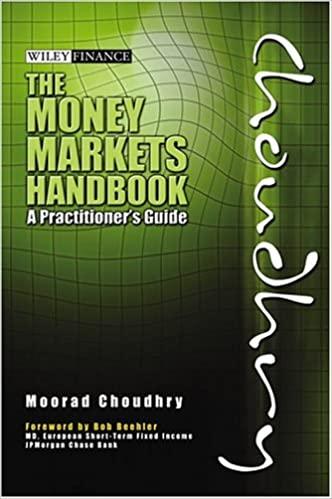Question
The characterization of a party as a merchant or nonmerchant has great significance under Article 2 of the Uniform Commercial Code (UCC). In most cases
The characterization of a party as a merchant or nonmerchant has great significance under Article 2 of the Uniform Commercial Code (UCC). In most cases it will be relatively clear if a person or entity should be classified as a merchant under Article 2s definition. In a significant number of cases however, it is not so clear. Moreover, a person or entity may be a merchant for some purposes, but not for others. Review the following facts: National Computing Corporation (NCC) was engaged in the business of buying and selling computer output microfilming equipment. JP Morgan Chase orally agreed to sell some of its used computer output microfilming equipment to NCC for $100,000. The next day, NCC sent a signed email to Chase, detailing the terms of their oral agreement. Chase received the email but did not respond. Two weeks later, Chase sold the equipment to UNC Charlotte, which had offered $115,000 for the equipment. NCC filed suit against Chase alleging breach of contract. Chase requested dismissal of NCC's complaint on the basis of the Statute of Frauds, alleging that the purported contract in question was for the sale of goods, it was over $500, and that it had not signed any written memorandum as required by the UCC. NCC opposed dismissal claiming the contract was covered by the merchant exception to the Statute of Frauds. In presenting its case, NCC noted that Chase sold $6.5 million worth of used computer output microfilming equipment from 2019-2021, and that Chase had established written policies and procedures for the sale of its surplus assets. Chase's response was that it never purchased the computer output microfilming equipment for the purpose of resale and that Chase has no specialized knowledge concerning the goods which it buys for its own use. Further, Chase had no familiarity with the market for the equipment which it purchased, and that when it disposed of surplus goods, it generally sold them to resellers, rather than end users, and usually sold the equipment for less than fair market value. Was Chase a merchant for purposes of this transaction? Provide arguments for both sides, then indicate which position is more likely to prevail.
Step by Step Solution
There are 3 Steps involved in it
Step: 1

Get Instant Access to Expert-Tailored Solutions
See step-by-step solutions with expert insights and AI powered tools for academic success
Step: 2

Step: 3

Ace Your Homework with AI
Get the answers you need in no time with our AI-driven, step-by-step assistance
Get Started


